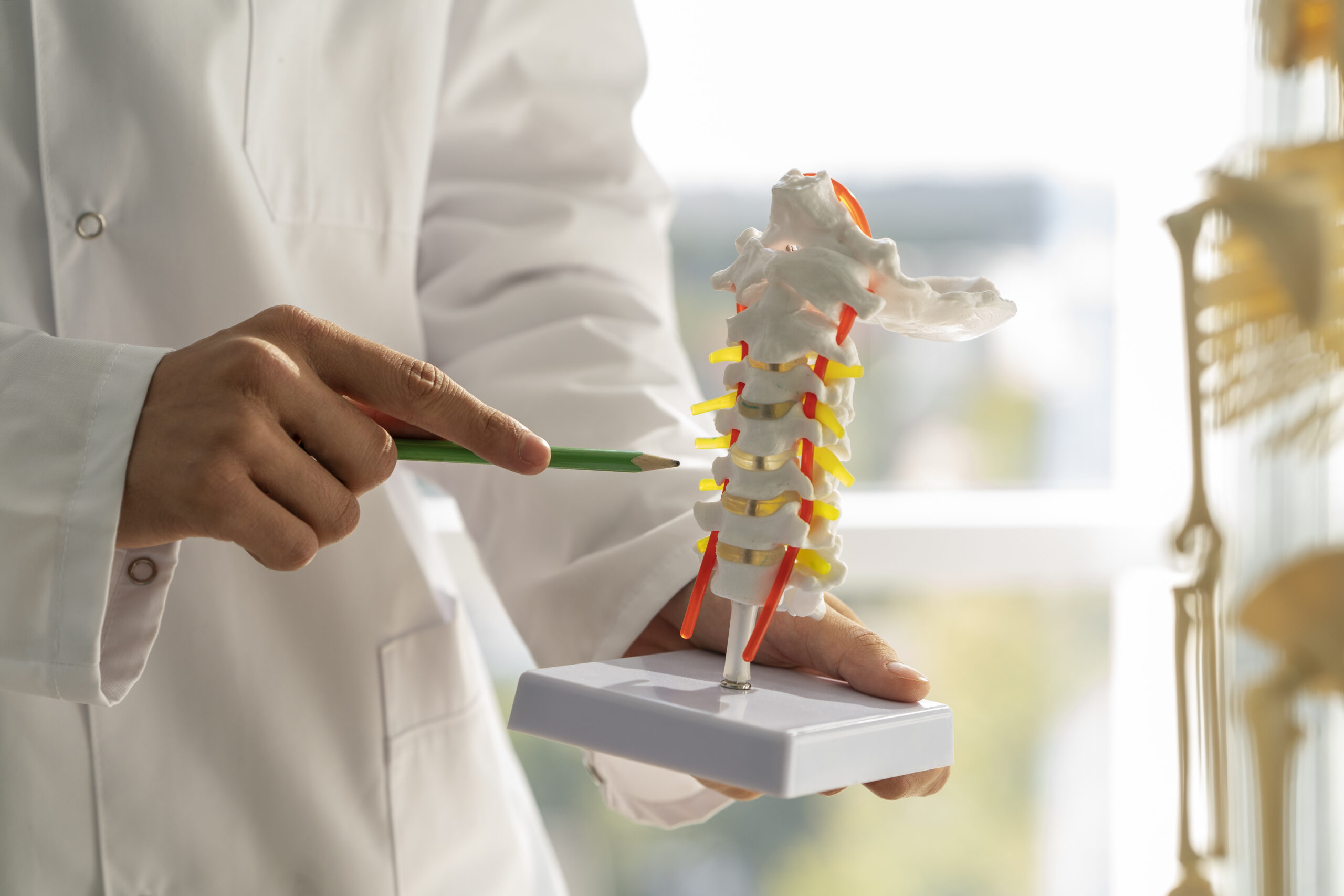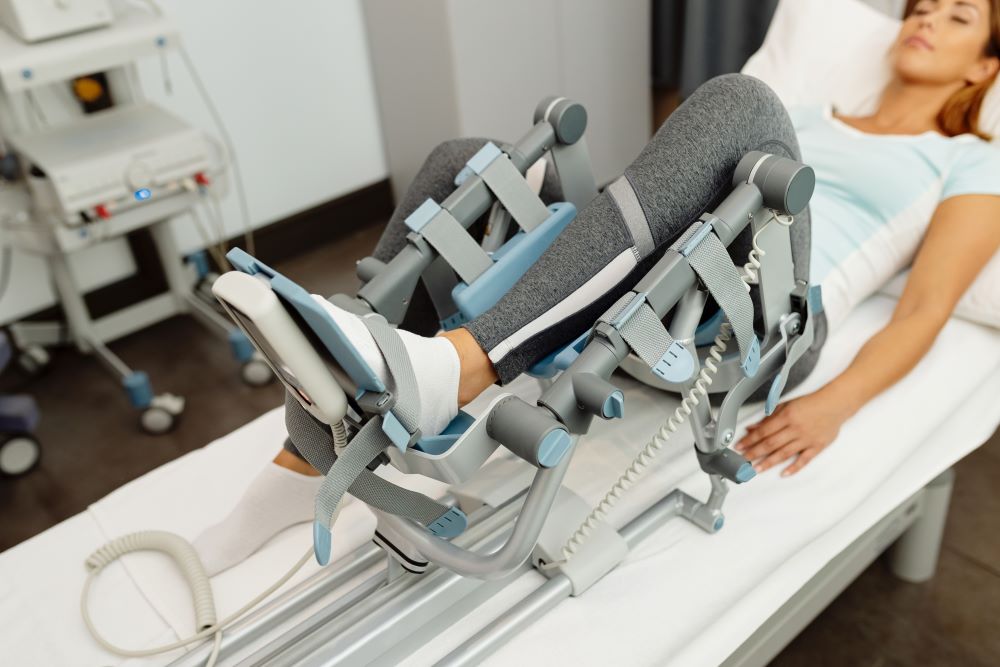Hip replacement surgery is a groundbreaking treatment for patients who experience terrible arthritis, fractures, or disabling hip pain. Advances in orthopaedics and robotics allow quicker recuperation and greater precision by using minimally invasive procedures. Advance knowledge of the operation prior to, during, and after surgery is required for most patients for a more straightforward and faster recovery of mobility.
Learning About Hip Replacement Surgery
Hip replacement surgery substitutes the worn-out portions of the hip joint (ball-and-socket joint) with artificial ones. It is generally indicated for:
- Osteoarthritis and rheumatoid arthritis
- Avascular necrosis
- Hip fracture
- Recurring hip joint pain despite medications or physiotherapy.
New advances, such as robotic-assisted navigation, new-generation implants, and minimally invasive surgery, have transformed results, much like robotic knee replacement surgery, which has transformed knee care.
Pre-Surgery: Preparation is Key
Pre-op is the critical stage of a hip replacement surgery. Optimal planning, medical optimisation, and education of the patient ensure safe and predictable outcomes.
1. Consultation and Diagnosis
- Past medical history, symptoms, and imaging results like X-rays or MRIs are reviewed by an orthopaedic surgeon.
- Joint function, movement restriction, and overall status of health are evaluated to decide upon the need for surgery.
2. Medical Optimisation
- Pre-anaesthetic check-ups, ECGs, and blood tests reduce intraoperative risk.
- Diabetes, hypertension, and cardiovascular disease are preoperatively controlled.
3. Lifestyle Modifications
- The patients may be advised to stop smoking, reduce weight, and do preoperative exercises to build muscles.
- Preoperative physiotherapy improves postoperative recovery and muscle tone.
4. Patient Education
- Patient education regarding what to expect reduces anxiety.
- Surgeons explain the type of implant, mode of function, risks, and duration of recovery.
- Patients who look for the best knee replacement hospital in Mumbai value transparency, whereas literate hip replacement patients will feel at ease when they are operated on.
During Surgery: What Actually Happens.
Hip replacement surgery is usually 1 to 2 hours and includes the following:
1. Anaesthesia
Regional (spinal/epidural) or general anaesthesia makes the patient insensitive to pain during the surgery.
2. Incision and Approach
- The hip joint is approached by either a minimally invasive or traditional method by the surgeon.
- The damaged bone and cartilage are removed carefully.
3. Implant Placement
- The faulty femoral head is replaced with a rounded prosthetic ball.
- The acetabulum (socket) is resurfaced and lined with a prosthetic cup.
- Contemporary implants are designed to provide stability, durability in the long run, and natural motion.
4. Closure and Recovery
- Muscles and tissues are reconstructed carefully.
- Dissolvable or routine stitches close the incision.
The precision of this technique is the same as that achieved in robot-assisted knee replacement, where robotic arms guide and place implants with unmatched accuracy.
Post-Surgery: Recovery and Rehabilitation.
Rehabilitation of the surgery is where real recovery happens. It can be quicker and less problematic with good hospital staff.
1. Post-Operative Immediate Care
- Patients are taken to recovery rooms for observation.
- Medications for pain management and physiotherapy may be initiated within 24 hours.
- Walker or crutches are provided as first aid.
2. Hospital Stay
- The hospital stay for the majority of patients is 3–5 days.
- Safe walking, stair climbing, and positional transfer are taught to patients.
- Hip strengthening exercises and joint movement exercises are instructed by physiotherapists.
3. Rehabilitation at Home
- Weight-bearing is progressively resumed.
- Wound care, home fall-proofing, and daily physio exercises are done at home.
- The majority of patients are able to resume normal daily activities within 6–12 weeks.
4. Recovery in the Long Term
- Follow-up appointments track implant stability and hip function.
- Walking, cycling, and swimming can typically be resumed.
- Heavy lifting and contact sports can be avoided through individual recovery.
Mental and Lifestyle Benefits
Along with physical progress, hip replacement surgery also significantly enhances mental health and independence. Patients say:
- Erasing decades of pain
- Freedom of action in day-to-day living
- Better sleeping patterns
- Greater self-confidence and mobility
The psychological transformation is generally compared to patients who undergo complex surgeries like robot knee replacement and heal both physically and mentally.
Selecting the Ideal Hospital
The proper centre selection is as good as the surgery. Outcomes primarily rely on the experience of the surgeon, the equipment utilised, and the rehabilitation.
Best knee replacement hospital is primarily sought by those patients who take into account:
- State-of-the-art operating theatres
- Experienced orthopaedic and robotic surgery professionals
- Long-term rehabilitation units
- Affordable and patient-friendly care
In hip replacement, all the above lead to safer surgeries and faster rehabilitation.
Why Choose Team OrthoRobotics?
Consult with Team OrthoRobotics, which offers state-of-the-art joint replacement surgery for the knee and hip. Precision, benevolent attitude, and success rate – this team offers:
- Robotic and traditional joint replacement specialist services.
- Patient-focused rehabilitation ideology
- State-of-the-art facilities at reasonable fees
- Committed to restoring mobility and quality of life.
Wishing to undergo robotic knee replacement surgery in Mumbai or augmented hip replacement therapy, Team OrthoRobotics achieves the ideal mix of innovation and compassion to deliver maximum returns.
Conclusion
Hip replacement surgery is more than just a medical procedure; it’s a life-changing step towards pain-free mobility, confidence, and independence. With expert surgeons, advanced technology, and personalised rehabilitation, patients can look forward to faster recovery and lasting results. Choosing a trusted team like Team OrthoRobotics ensures that every step of your journey is guided with precision, compassion, and care.
Consult now and regain your freedom of movement with Team OrthoRobotics.
FAQs
1.For how long does hip replacement surgery take?
Hip replacement surgery is typically 1–2 hours, depending on the patient’s condition, surgical approach, and the implant chosen for stability.
2. How is recovery after hip replacement?
The majority of patients resume full activity in 6–12 weeks, with physiotherapy permitting strengthening, mobilisation, and successful long-term results.
3. Are there complications to hip replacement surgery?
As with any other surgery, the risk is infection, blood clot, loosening of the prosthesis, or dislocation, but with more advanced technology, complications are significantly reduced.
4. Why choose Team OrthoRobotics for hip replacement?
Team OrthoRobotics offers experienced surgeons, robotic accuracy, cost-effective treatment, and full rehab for better results for hip replacement.





